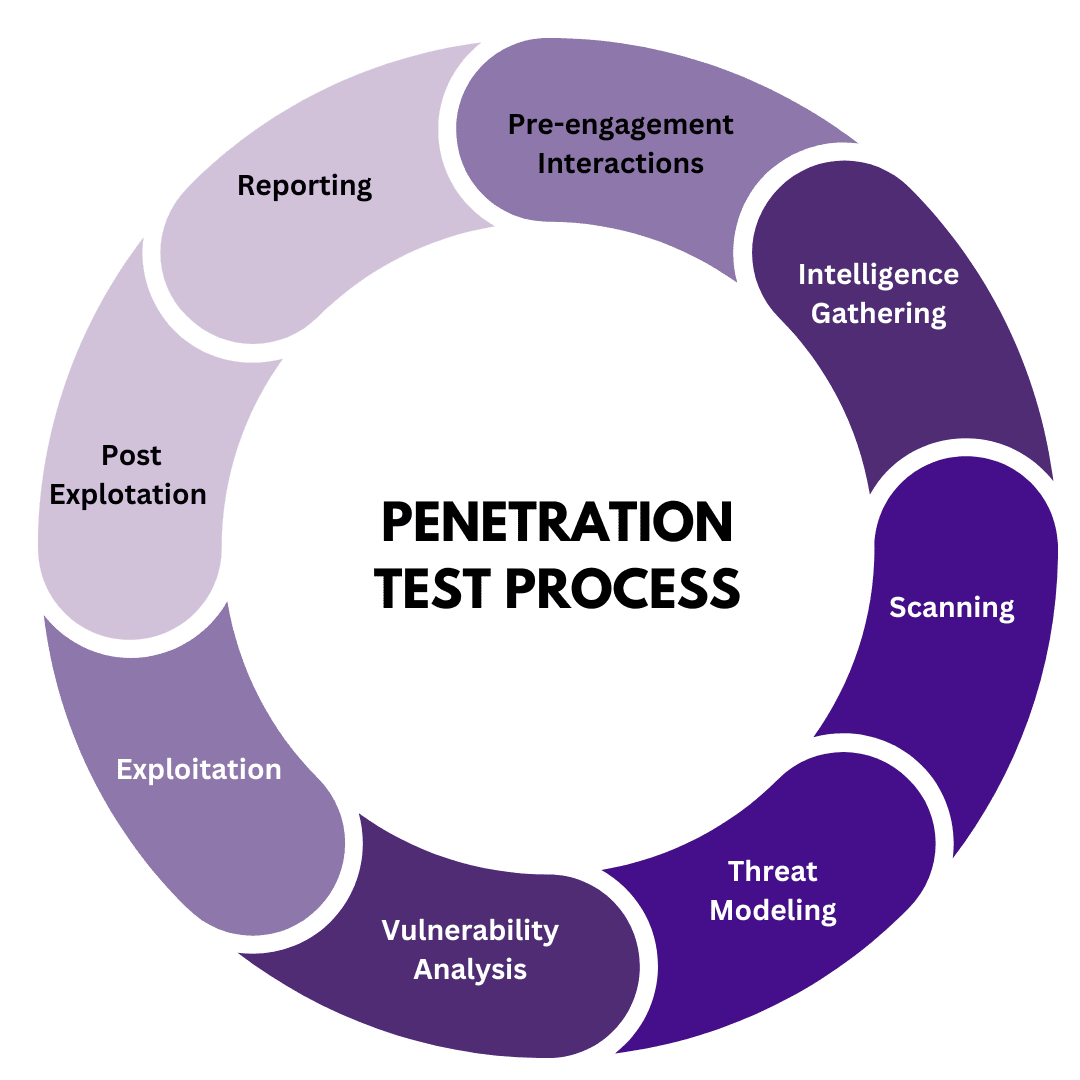Penetration testing, often referred to as ethical hacking, is one of the most exciting and impactful careers in cybersecurity. These professionals play a critical role in identifying vulnerabilities in computer systems, helping organizations safeguard sensitive data from malicious hackers. The appeal of this field lies not just in its importance but also in its constant challenges and opportunities to learn.
A common question aspiring penetration testers face is, “Do I need a degree for penetration testing?” The answer isn’t straightforward—it depends on the employer, the individual’s skills, and the path one chooses to follow. While degrees offer a solid foundation and credibility, the field is also well-known for valuing hands-on expertise and certifications.

Penetration testing, often abbreviated as pen testing, is a simulated cyberattack on a computer system, network, or web application to identify vulnerabilities that could be exploited by malicious actors. These tests are conducted by ethical hackers who mimic the tactics of cybercriminals to uncover weaknesses before they can be exploited in real-world scenarios.
The primary goal of penetration testing is to strengthen an organization’s security posture. By identifying vulnerabilities, penetration testers provide actionable recommendations to mitigate risks, ensuring that the organization’s digital assets remain secure. Whether it’s testing firewalls, web applications, or cloud infrastructures, penetration testing is an essential component of a robust cybersecurity strategy.
Skills and Tools Used by Penetration Testers
Penetration testers rely on a combination of technical skills, creativity, and specialized tools. Here are some of the most important aspects of their work:
- Technical Skills:
- Networking: A deep understanding of TCP/IP, DNS, VPNs, and firewalls is essential.
- Programming: Knowledge of languages like Python, JavaScript, and Bash scripting is invaluable.
- Operating Systems: Proficiency in Linux and Windows environments is a must, especially using distributions like Kali Linux, designed specifically for penetration testing.
- Common Tools:
- Kali Linux: A popular operating system packed with security tools for ethical hacking.
- Metasploit Framework: Used for developing and executing exploit code.
- Wireshark: A network protocol analyzer that helps testers capture and inspect data packets.
- Burp Suite: Focused on web application security testing.
- Soft Skills:
- Communication is key. Penetration testers must articulate technical findings in ways that non-technical stakeholders can understand.
- Problem-solving and creative thinking enable testers to outsmart cybercriminals.

The Value of a Degree in Cybersecurity
Advantages of Having a Degree
A formal degree in cybersecurity, computer science, or a related field can provide a strong foundation for aspiring penetration testers. While not always mandatory, earning a degree offers several distinct advantages that can help you stand out in a competitive field:
- Structured Learning:
- Degrees provide a comprehensive curriculum that covers foundational topics like programming, networking, cryptography, and system design.
- Academic institutions often expose students to a broader perspective of computer science, enabling them to understand how various components of technology interact.
- Credibility with Employers:
- Many employers, especially larger organizations and government agencies, prefer or require candidates to have a degree for cybersecurity roles.
- A degree signals to employers that you have committed time and effort to mastering the basics, even if additional skills are needed.
- Access to Resources and Internships:
- Universities often have partnerships with tech companies, offering students opportunities to intern and gain hands-on experience.
- Students have access to advanced research facilities, professors with industry experience, and networking opportunities with peers and alumni.
- Career Flexibility:
- A degree isn’t limited to penetration testing. It opens doors to other cybersecurity roles such as security analyst, IT auditor, or risk manager, providing flexibility if you choose to pivot within the industry.
Popular Degrees for Aspiring Penetration Testers
If you decide to pursue a degree, the following fields are most aligned with penetration testing:
- Computer Science:
- Focuses on programming, algorithms, and system architecture.
- Offers a strong theoretical foundation and problem-solving skills that are applicable to cybersecurity.
- Cybersecurity:
- Specifically tailored for those interested in securing systems, data, and networks.
- Includes coursework in ethical hacking, digital forensics, and risk management.
- Information Technology:
- Combines technical skills with an understanding of business processes.
- Prepares students for roles that bridge the gap between IT operations and cybersecurity.
While a degree provides a solid starting point, it is not the only pathway into penetration testing. Alternative routes, including certifications and hands-on experience, can be just as effective.

Can You Succeed Without a Degree?
A degree can be helpful, but it’s not the only way to break into penetration testing. Many successful penetration testers have entered the field without a formal education, relying instead on certifications, hands-on experience, and a strong portfolio. Here’s how you can carve out a path to success without a degree.
Skills Over Degrees: What Employers Look For
In the field of penetration testing, practical skills often outweigh formal education. Employers prioritize candidates who can demonstrate their ability to identify vulnerabilities and secure systems. Key skills include:
- Technical Proficiency:
- Familiarity with tools like Metasploit, Nmap, and Burp Suite.
- Strong knowledge of networking and system architecture.
- Problem-Solving Abilities:
- Creative thinking and persistence in uncovering security flaws.
- Up-to-Date Knowledge:
- Staying current with the latest cybersecurity threats and techniques.
Many organizations, especially startups and small-to-medium-sized enterprises, are open to hiring skilled candidates without degrees, provided they can prove their expertise.
Industry-Recognized Certifications
Certifications are a powerful alternative to degrees, offering focused, practical knowledge that aligns closely with industry needs. Here are some of the most sought-after certifications for aspiring penetration testers:
- Certified Ethical Hacker (CEH):
- Covers the basics of ethical hacking and penetration testing.
- Ideal for beginners looking to build foundational knowledge.
- Offensive Security Certified Professional (OSCP):
- Known as the gold standard in penetration testing certifications.
- Focuses on practical, hands-on skills with an intensive exam that tests real-world hacking scenarios.
- CompTIA Security+:
- A beginner-friendly certification that provides a broad overview of cybersecurity concepts.
- GIAC Penetration Tester (GPEN):
- Designed for professionals with some experience, focusing on advanced penetration testing techniques.
Building a Portfolio
A portfolio showcasing your practical skills is critical when you don’t have a degree. Employers want to see proof that you can handle real-world challenges. Here’s how to build a strong portfolio:
- Create and Document Projects:
- Participate in Capture The Flag (CTF) challenges on platforms like Hack The Box and TryHackMe.
- Build virtual labs to practice penetration testing and document your findings.
- Contribute to Open Source:
- Collaborate on open-source cybersecurity projects, which can also help you connect with the cybersecurity community.
- Develop a Personal Blog:
- Write about your experiences, tools you’ve used, and vulnerabilities you’ve explored.
- Sharing knowledge not only demonstrates your expertise but also enhances your credibility in the field.
While formal education can open doors, alternative pathways allow you to demonstrate your capabilities directly. Employers in penetration testing increasingly recognize the value of certifications, hands-on experience, and a proven track record over a traditional degree.

The Debate: Degree vs. Experience
When considering a career in penetration testing, the question of whether a degree is necessary often boils down to weighing the value of formal education against practical experience. Both paths have their merits, and the right choice depends on your goals, resources, and the requirements of your desired role.
When a Degree May Be Necessary
While penetration testing is a field that values skills and certifications, there are scenarios where having a degree can be beneficial or even required:
- Government and Large Corporations:
- Many government positions, especially in agencies like the NSA or FBI, mandate a degree for cybersecurity roles. These organizations often require candidates to have a bachelor’s or even a master’s degree.
- Large enterprises may have rigid HR policies that prioritize degree holders to streamline their hiring process.
- Advanced or Specialized Roles:
- Some penetration testing roles involve deep theoretical knowledge, such as cryptography or reverse engineering, where formal education can provide a competitive edge.
- Professional Growth Beyond Penetration Testing:
- If you aim to transition into managerial roles or expand into other areas of cybersecurity, a degree can provide a broader knowledge base and open doors to leadership positions.
When Experience and Certifications Are Enough
In many cases, practical experience and certifications outweigh formal education. Here are scenarios where this is particularly true:
- Small Businesses and Startups:
- Smaller organizations often prioritize immediate, hands-on expertise over academic qualifications.
- They may look for candidates who can hit the ground running with proven skills in ethical hacking and penetration testing.
- Freelance and Contract Work:
- Many penetration testers work as freelancers or contractors, where clients focus on your ability to deliver results rather than your educational background.
- Building a reputation through completed projects and successful engagements can replace the need for a degree.
- Fast-Growing, Skills-Driven Industry:
- The cybersecurity industry is evolving rapidly, and hiring practices are adapting to emphasize certifications, real-world experience, and problem-solving capabilities over traditional degrees.
Striking the Right Balance
For many professionals, combining both pathways yields the best results. Here’s an example of a balanced approach:
- Earn Relevant Certifications: Focus on practical certifications like OSCP or CEH while gaining real-world experience through internships, freelance projects, or lab work.
- Consider a Degree Later: If your long-term goal includes managerial roles, a degree can be pursued while you’re actively working in the field.
What Employers Really Care About
Employers in the penetration testing space often prioritize:
- Results: Can you identify and exploit vulnerabilities effectively?
- Adaptability: Do you stay current with evolving security threats and tools?
- Communication: Can you clearly explain technical findings to non-technical stakeholders?
Both degrees and experience offer valuable contributions to your career, but your ultimate success will depend on your ability to showcase your unique strengths.